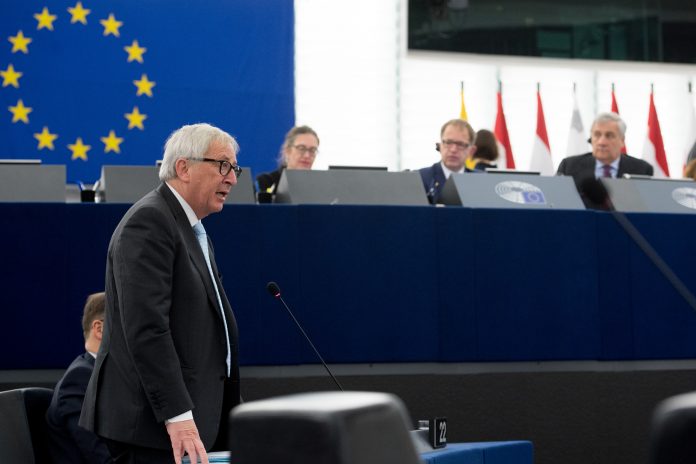Some of the priorities for the environment, maritime affairs and fisheries in Europe are charted here when it comes to the all-important European Commission policy around these crucial themes
One of the responsibilities of European Commissioner for the Environment, Maritime Affairs and Fisheries, Karmenu Vella, is protecting the environment while maintaining the competitiveness of Europe. We’ll be looking at an example of this in this article that concerns air quality, as well as aspects of European Commission policy around maritime affairs and fisheries.
The environment: Legislation on air quality
The European Commission recently highlighted that today, we are sadly witnessing people in Europe struggling with health issues as a result of poor air quality. Commissioner Vella made a statement about this in January 2019, some of which you can read below.
“We should all be concerned with the quality of the air that Europeans breathe. The protection of our citizens’ health is therefore very important for us…when it comes to the European legislation on air quality. The European limit values, approved by the governments of all Member States and the European Parliament, are based on solid scientific evidence provided by the World Health Organisation (WHO), which is the world’s leading authority on health matters.
“This evidence is backed up by countless scientific papers, which – if I may add – have been peerreviewed.”
Commissioner Vella concludes that additional action is, therefore, required urgently to speed up measures that will improve air quality so that the health of European citizens is protected. (1) We’ll return to the theme of protecting the environment at the end of the article.
Maritime affairs: Renewable energy
One key aspect of the policy remit of Commissioner Vella is marine renewable energy, something that he keenly discusses during a speech at the Energy Council in December 2018. The picture he paints here is that today, Europe is the world’s leader in marine energy. He illustrates this belief with some interesting facts and figures.
“We host 50% of the world’s tidal energy developers, 60% of wave energy developers, 70% of ocean energy capacity, and 75% of floating offshore wind projects.
“And yes, the industry is small. But it doesn’t have to stay that way. By 2050, marine renewable energy could provide 10% of Europe’s electricity. For wave and tidal energy technologies alone, the industry expects up to 400,000 new jobs by 2050. And not just in coastal areas. This is a truly pan-European industry with supply chains that reach far into the heart of Europe.”
In his speech, Commissioner Vella reveals his support for today’s entrepreneurs, as a former businessman himself. He calls for the deployment of these technologies to start in the early 2020s, which will enable the industry to have sufficient time to learn and further reduce costs in Europe. (2)
Maritime affairs: The role of research and innovation Speaking at the Blue Invest in the Mediterranean 2019 in Malta, in January this year, Commissioner Vella reveals that the European Commission has invested no less than €800 million in maritime research and innovation over the last three years.
“We will continue to invest. We plan to spend more than €200 million of our new European Maritime and Fisheries Fund on blue economy projects – more than ever before”, Commissioner Vella remarks. He underlines that the part the Commission plays isn’t just about funding but it concerns creating the conditions for businesses to succeed.
While entrepreneurs often raise the issues of a lack of access to finance, Vella reveals that the Commission is working with the European Investment Bank to establish a European Investment Platform for the Blue Economy. “Operated by investment experts, this platform would combine funds from public and private sources into a single financing instrument. It would also offer a full range of investment-readiness services”, Commissioner Vella explains. (3)
Fisheries
Another key aspect of Commissioner Vella’s remit concerns fisheries, something that he discusses during a speech following the Fisheries Council on 19th December 2018. Here, his outlook for European fishermen and for fish alike is a good one, indeed fishing opportunities for European fishermen worth more than €5 billion were agreed upon. This move benefits more than 50,000 fishermen and the catches agreed in December 2018 will continue to make the European fishing industry highly profitable in the future, Commissioner Vella says.
“We were able to agree on increased quotas…fully in line with scientific advice, on a number of very important stocks, such as northern hake, northern haddock, horse mackerel, seabass and some stocks of Norway lobster.” Commissioner Vella then notes that the Member States showed solidarity towards each other, where zero or low quotas along with the landing obligation would have forced an individual Member State to stop very early or to not even start fishing for particular stocks. Commissioner Vella elaborates on the role of the Member States when it comes to quotas.
“Here, Member States used existing mechanisms to address such situations, but also agreed on a new tool, based on the Commission’s proposal. The system of limited by-catch quotas together with the creation of a common pool based on contributions from a number of Member States will address possible choke situations. The solution agreed includes incentives for fishermen to be more selective and commitments by Member States to take appropriate control measures. I would like to thank all Member States who have invested a lot in preparing this package.”
Having said this, Commissioner Vella believes that additional efforts are needed to further improve selectivity and to control the landing obligation. He then shares his thoughts on this matter.
“We also took some difficult decisions on stocks which are not in a good shape. In particular, I would like to commend the responsible decision to follow the Commission’s proposal and to reduce catches for Herring in the Celtic Sea by 53%, reduce catches for Nephrops in the waters around Ireland by 32% and to reduce catches for sole in the Eastern channel by 26% – all three in line with the MSY advice.”
Commissioner Vella adds that further progress has been made on protecting the eel stock, which is still in a critical condition. Following the important decisions taken earlier in 2018 for the Mediterranean, the European Commission has created a level playing field across the EU by establishing a consecutive three months closure period for all fisheries of European eel at all life stages. “This closure will apply to all marine waters and to brackish waters. These are crucial measures to ensure the recovery of the stock”, Commissioner Vella points out.
“The Council also adopted the Commission’s proposal for fishing opportunities on sprat and turbot in the Black Sea for 2019. The turbot multi-annual plan adopted last year by the GFCM was the first ever plan for the Black Sea. I am confident that the situation of turbot will improve and that IUU fishing will be reduced substantially.”
Commissioner Vella states that decisions adopted in late 2018 allow for further progress in ensuring sustainable fisheries in the European Union. He highlights that there is certainly a challenge ahead in 2019 for efforts to be stepped up to reach the agreed targets. (4)
Protecting the environment
Let’s bring this article to a conclusion by briefly looking at the news in December 2018 that concerns an aspect of protecting the environment. The Commission welcomes an ambitious agreement on new rules to reduce marine litter which targets the 10 plastic products most often found on the beaches of Europe plus abandoned fishing gear.
The new rules are part of a broader effort to turn Europe into a more sustainable, circular economy, something that is reflected in the Circular Economy Action Plan adopted in late 2015. The emphasis is on Europe’s businesses and consumers to produce and use sustainable alternatives that avoid marine litter and oceans pollution, therefore, tackling an issue that has global implications.
Commissioner Vella provides his comments on this, which I think are reflective of his wider aims to protect the environment in a number of ways, whether that is on the land or in the ocean itself.
“When we have a situation where one year you can bring your fish home in a plastic bag, and the next year you are bringing that bag home in a fish, we have to work hard and work fast. We have taken a big stride towards reducing the amount of single-use plastic items in our economy, our ocean and ultimately our bodies.” (5)
References
- https://ec.europa.eu/commission/commissioners/2014-2019/vella/announcements/statementcommissioner-karmenu-vella-eu-airquality-standards-protecting-health-our-citizens_en
- https://ec.europa.eu/commission/commissioners/2014-2019/vella/announcements/speechcommissioner-vella-energy-council-marinerenewable-energy_en
- https://ec.europa.eu/commission/commissioners/2014-2019/vella/announcements/speechcommissioner-vella-blue-invest-mediterranean-2019-westindragonararesort-st-julians-malta-24_en
- https://ec.europa.eu/commission/commissioners/2014-2019/vella/announcements/speechcommissioner-vella-following-fisheriescouncil_en
- http://europa.eu/rapid/press-release_IP-18-6867_en.htm
Open Access Government











